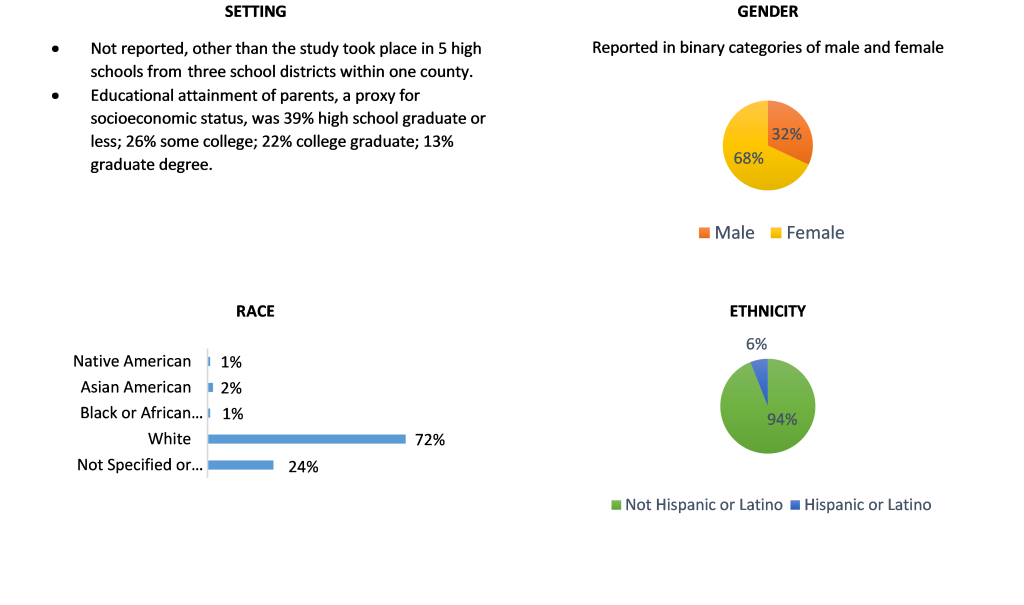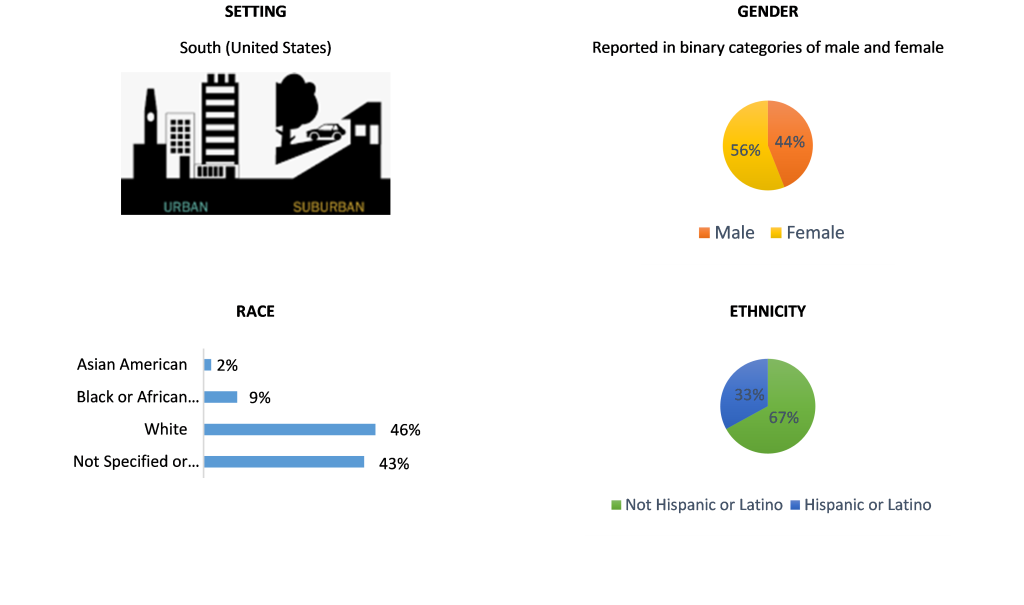
Program Description: The Blues Program actively engages high school students exhibiting depressive symptoms or who are at risk of onset of major depression in six weekly, one-hour group (4-8 participants) sessions and home practice assignments. Sessions focus on building group rapport, increasing participant involvement in pleasant activities, learning and practicing cognitive restructuring techniques, and developing response plans to future life stressors. Motivational enhancement exercises are used to maximize willingness to use new skills, strategic self-presentation is used to facilitate internalization of key principles, behavioral techniques function to reinforce the use of new skills, and group activities foster feelings of social support and group cohesion. In-session exercises require teens to apply skills taught in the program, while home assignments reinforce these skills and help participants to apply the skills to their daily life.
Results: Blueprints has certified two studies evaluating the Blues Program. Both studies included students experiencing depressive symptoms and excluded students with a major depression diagnosis.
Study 1: The first study included 378 students from five high schools who were randomly assigned to the intervention group (n=126), or one of two control groups – cognitive-behavioral bibliotherapy (n=128) or educational brochure (n=124). Described in the certified article (Rohde, Stice, Shaw, & Brière, 2014), participants completed a survey and diagnostic interview at pretest, posttest and six-month follow-up. At posttest, intervention participants experienced significantly lower depressive symptom severity than the brochure control group and moderately lower (p=.06) symptom severity compared to the cognitive-behavioral bibliotherapy group. At six-month follow-up, the onset of major depressive disorder was significantly greater for both control groups compared with the intervention group.
Characteristics of Study 1 Sample as Reported by Study Authors:

Study 2: Stice et al. (2008, 2010) examined 341 students from six high schools who were randomly assigned to four conditions: the intervention group (n=89), supportive-expressive group (n=88), bibliotherapy group (n=80), or educational brochure group (n=84). Students completed self-report surveys and diagnostic interviews at pretest, posttest, 6-month follow-up, and one- and two-year follow-ups.
Relative to participants in one or more comparison groups, students in the intervention group had:
♦ greater reductions in interviewer-rated depressive symptoms at posttest, and one- and two-year follow-ups
♦ greater reductions in self-reported depressive symptoms at posttest, six-month follow-up, and two-year follow-up
♦ lower rates of major depression onset at six-month follow-up and two-year follow-up
♦ greater reductions in self-reported substance use at posttest and six-month follow-up
Characteristics of Study 2 Sample as Reported by Study Authors:

References:
Study 1:
Rohde, P., Stice, E., Shaw, H., & Brière, F. N. (2014). Indicated cognitive behavioral group depression prevention compared to bibliotherapy and brochure control: Acute effects of an effectiveness trial with adolescents. Journal of Consulting and Clinical Psychology, 82(1), 65-74. doi:10.1037/a0034640
Study 2:
Stice, E., Rohde, P., Seeley, J. R., & Gau, J. M. (2008). Brief cognitive-behavioral depression prevention program for high-risk adolescents outperforms two alternative interventions: A randomized efficacy trial. Journal of Consulting and Clinical Psychology, 76(4), 595-606. doi:10.1037/a0012645
Stice, E., Rohde, P., Gau, J. M., & Wade, E. (2010). Efficacy trial of a brief cognitive-behavioral depression prevention program for high-risk adolescents: Effects at 1- and 2-year follow-up. Journal of Consulting and Clinical Psychology, 78(6), 856-867. doi:10.1037/a0020544
Read the Program Fact Sheet
